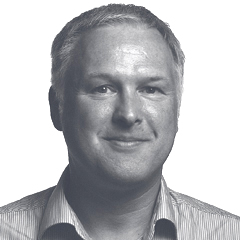If you read my previous blog, you’ll know that Cake Solutions, the company I co-founded, was acquired by a larger organisation in 2017. That brought 17 years of the business as I knew it to an end. I spent almost two years following the acquisition working for the new organisation.
When Cake was acquired, I fell into what I describe as the post-acquisition void. I’d spent almost two decades putting my heart and soul into building a company. Many entrepreneurs in a similar position will more than likely have also dedicated at least a decade to their business. Then I’d concentrated on the acquisition itself. Making sure that you hit the various parameters and tick all the boxes, which is a big job, and not one to be underestimated. It’s when you come out of the acquisition that you tend to enter the post-acquisition void.
You don’t have your business to focus on any longer. The acquisition has been successful and suddenly you’re free to begin to think about what to do next. That’s where I found myself around two years ago.

Where to next?
After Cake was acquired, I stayed with the business and worked under the new organisation. During that time I realised that my skill set was better suited to working with smaller companies, being entrepreneurial and starting small companies and taking them into high growth. Even though the acquiring company was fantastic to me and to work for, I no longer had the freedom to make snap decisions led by a gut feeling, everything took longer, much longer, and had to be justified in more than just my head. It just wasn’t me!
At this stage, I felt I had a really good idea for a new business and I decided I was going to jump straight back in and build another business. I thought I’d be able to do it more quickly and better than last time, because I’d learned so much on my journey with Cake. I’ll be sharing a lot of what I learned in this series of blogs, and I’m hoping that those learnings will be useful to you too.
Crucially, in the year after I left the company I decided to take quite a bit of time off to go on holidays and spend time with my family. After all, 17 years of building your business takes its toll, so I took what I realise is now a very wise decision to go on holiday, take time out and begin to think about what would come next and to start planning my future.
While I was planning this new business, I caught up with a guy that I started a business with back in 1999. We were talking about his business, which is absolutely flying and doing incredibly well with 500 employees based in Manchester, and during our chat he said, ‘Guy, I don’t understand why you’re going straight back to running and building another company. What you should consider doing is working with other companies and giving them the benefit of your experience.’
That chance conversation planted a seed. It made me sit back and think about what I really wanted to do, and also examine why I was so keen to jump straight in and build a new business. During this process, I realised that I was doing it to prove a point to no one else other than myself that could do it twice. That’s not a good basis for starting a new company, even though I still felt that I had a good idea that would be successful. This realisation prompted me to hold fire on my business idea and instead start working with other companies.
Changing direction
I was co-founder of & co-investor in thestartupfactory.tech But because of my role in the corporate world, I couldn’t spend any time in that company. That meant my ex colleague was running that business and I was effectively just an investor until I left my corporate role.
I started working with thestartupfactory.tech at least one day a week, sometimes a bit more, in my capacity as a non-exec to try to make a difference to the business. I believe I’ve had a positive impact on that company. But even though I’m now more heavily involved in this company, I still have time to work with other companies. And that’s what I’ve been doing.
I’m now working with three companies effectively as a board advisor and an investor. It’s important to me that I invest in every company I work with, because that shows that I have a genuine belief that they’re going to do well and that I can protect my investment by working with them. It allows me to give them the benefit of my experience and hopefully between us we’ll make the company a big success and therefore my investment will also be a big success.
I’ve also found that I’ve met people along the way who have a chat with me about an idea they’ve had and in the course of those conversations we realise that we share the same kind of vision and thought process for the idea. As a result, we’ve actually started working towards setting up new companies, which won’t require 100% of my time and won’t require 100% of their time. We’re deliberately setting up the business to scale by bringing in the appropriate people around us who will do the day-to-day work, while we will be involved as investors, and as members of the board as well as owners. That means we will drive the strategy for the business and build the right team to take that business forward and hopefully make a success of what we believe are really good ideas.
By taking some space and time instead of diving straight into a new business that would have taken up all of my effort, I’ve found greater freedom and a new direction that suits me. I’m involved in multiple businesses. I’m working with people who I enjoy working with. I’m helping other people to grow their businesses.
New-found freedom
One of the most important things that the acquisition of Cake gave me was financial freedom. It has given my family financial security and it’s allowed me to invest in other companies and work with those companies really closely to help make them a success, which is fantastic. What’s more, it’s allowed me to begin to build a couple of brand new businesses with some really interesting partners. I’m working on businesses that I couldn’t set up on my own, but these are also businesses that my partners couldn’t establish on their own. We complement one another and get on really well, which is really important. And so far, everything is looking good.
But more than financial security, the acquisition has given me the freedom to choose what I want to do next. I found myself in the post-acquisition void, but instead of rushing straight into the next business idea to fill that void, I took some time out and I’d strongly advise any entrepreneurs who find themselves in a similar position to do the same. Don’t jump in and make decisions straight away. Take some time out, go on some nice holidays, take plenty of time off with your family and spend time with your friends. This time will bring you clarity, and it can also bring you new opportunities.
When people hear that you’re on the market, so to speak, they’ll contact you with opportunities. I’ve been pleasantly surprised by how many people have contacted me. I have options.
That’s the other thing that this acquisition, and ultimately the money, has given me: the freedom to choose who I want to work with and what I want to work on. It’s given me the freedom to continue to make a greater positive difference in the world.
Making a difference
I’ve been able to get a good balance of projects, some that are advisory and investments and others that require more involvement on my part. I have also been able to choose to work with a charity and a not-for-profit organisation.
For example, one of the projects that I’m involved with is a really noble project in the finance world, which is trying to tip the balance in favour of the consumer when things go wrong.
I’m now involved in multiple businesses as an investor, an advisor, or a founder and while money is a measure of your success, it’s not the factor that drives me. The driver is making a positive difference in everything I do from the people I’m working with and the products and services they’re offering, to generating wealth and employment in the UK and maybe further afield.
The lesson here is that there is often a post-acquisition void, I certainly experienced one. I didn’t know what I wanted to do, or, worse, I thought I knew what I wanted to do only to realise when I thought more carefully about it that it wasn’t the direction I wanted to go in. The key was taking that time to think, look at all the opportunities people were presenting me with and to select the ones I felt most passionate about.
The acquisition of Cake gave me the freedom to truly choose what I wanted to do. Now, I’m in a really privileged position where I can spend the next 25+ years of my life working on projects that do good. I can spend my time helping other people build companies, but also build companies myself with other people running them, and through all of this I can make a positive difference to people’s lives, the country and ultimately the world.
My ultimate aim is a moonshot; I want to do something that fundamentally helps millions and millions of people. I don’t know what that is yet, but I know I’ll be ready when it comes along. My short to medium-term vision is acting as an investor, advisor and founder of multiple businesses, but my long-term vision is to make a difference to a billion people. I know that at some point I’ll come across the opportunity that will enable me to do that and when that happens, that will become my focus.
What’s helped me out of the post-acquisition void is having meaning to what I want to do in the short to medium-term, as well as that overarching long-term vision. I’ve turned that void into a really happy place and I’m excited to keep going on my entrepreneurial journey and see what I can achieve.
For more ideas and information, feel free to get in touch: guyremond@gmail.com

Guy is an experienced individual with over 20 years in the tech, software & consulting/advisory industries, as a founder, director, investor and advisor in a number of companies.

